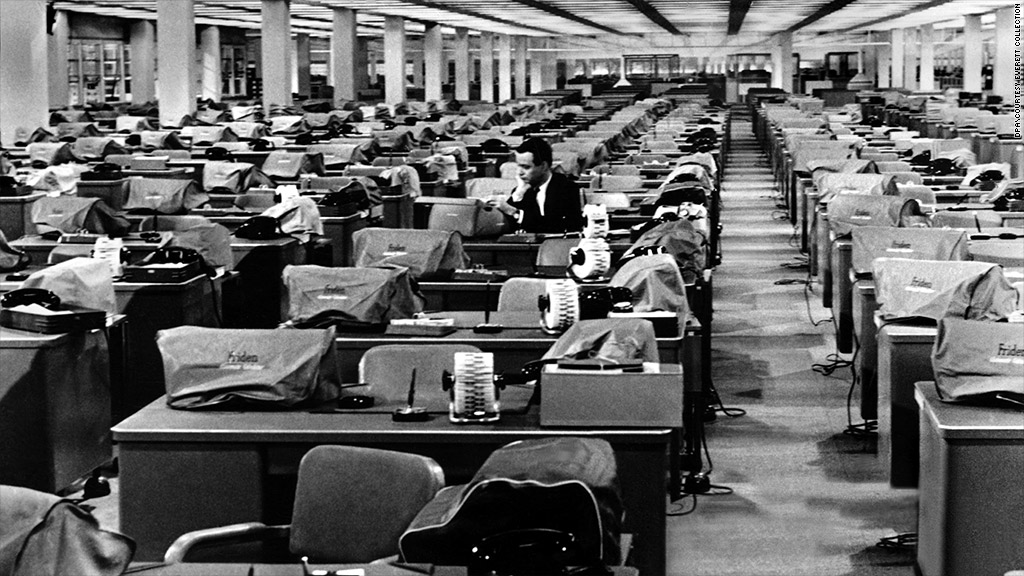
What would you do with your time if you only had to work four, three, or even two days a week?
Decades ago, experts predicted we would all be working just 14 to 15 hours a week by now, and would have so much free time, we wouldn't even know what to do with ourselves.
Instead, U.S. workers have been stuck with the official 40-hour workweek -- or even longer for many of us -- since 1938, in order to finance our ever-expensive lifestyles.
The predictions: Back in 1930, renowned economist John Maynard Keynes predicted technological advancements would mean we would all eventually work just 15 hours a week. That same year, evolutionary biologist Julian Huxley predicted the two-day work week. Both men warned that someday, we would have so much leisure time, we would be bored out of our minds.
"The human being can consume so much and no more," Huxley said in 1930. "When we reach the point when the world produces all the goods that it needs in two days, as it inevitably will, we must curtail our production of goods and turn our attention to the great problem of what to do with our new leisure."
More recently, a 1965 Senate subcommittee predicted we would be working 14 hours a week by the year 2000, with at least seven weeks of vacation time.
The reality: These great thinkers were right about one thing. Technological progress has made workers more productive than ever before.
Yet rather than cutting the work week gradually over time (like the Europeans did), productivity gains have fueled a consumerism boom in the United States. So instead of taking time off, Americans are just buying much more stuff.
Benjamin Hunnicutt, a historian at the University of Iowa, calls the shorter workweek the "forgotten American dream."

"New marketing techniques of corporate America were able to convince us to buy things we had never seen before and had never needed before," he said. "Work was valorized -- elevated to the center of life more so than it ever had been before, and leisure was demoted and trivialized."
Meanwhile, income gains have been disproportionately distributed throughout the economy. Middle-class wages have largely remained stagnant since the 1980s, after adjusting for inflation, whereas the top 1% richest Americans have captured much of the wealth.
Poll: If you had a choice between a longer weekend or more pay, which would you choose?
The 40-hour work week, adopted shortly after the Great Depression, was originally thought of as a job creation tool.
"Cutting hours of work can have positive effects on employment levels during a severe economic downturn," the International Labour Organization noted in a report last month.
Shortened hours can be used to create jobs, the ILO said, as fewer hours for one worker means more work for another.
And shorter workweeks are not entirely unheard of today.
Since the economic crisis, lots of workers have been forced to shorten their work week as their employers cut back.
During the height of the recession, Utah tried cramming 40-hour work weeks for its government employees into four 10-hour days, in order to save on operating costs and avoid layoffs. The government was able to cut costs, while the employees got an extra day off without having to take a hit to their paychecks.
Shorter weeks are also common in Europe. In the Netherlands, four-day work weeks are practically the rule, not the exception. And France tried a 35-hour work week for a few years, too.
The average German worker puts in 394 hours less than an American each year -- the equivalent of nearly ten fewer weeks. The country is far smaller than the United States in area, population and resources, yet still manages to compete as the fourth largest economy and third largest exporter in the world.
CNN: Why four-day workweeks are best
Money doesn't buy happiness: In most cases, fewer hours mean workers might have to take a pay cut, and would not be able to buy as much. But in exchange, they'll get more free time, save on child care costs and likely be healthier and happier in general.
For example, Dutch workers are on par with American workers in terms of productivity per hour. They pay higher taxes and earn less than Americans. But on average, they work roughly 11 weeks less than their American counterparts each year, have access to government-funded health care, pay little or nothing for a college education, and have far more leisure time than the American.
When UNICEF recently ranked 21 industrialized nations by well-being for children, Netherlands was on top and the United States was near the bottom, in 20th place.
Guess who also ranked happier with life overall? The Dutch worker.
But Americans still labor on.
"The idea that we can grow our economies forever and ensure everyone a full-time job is a myth," Hunnicutt said. "We have to deliberately choose to work less and therefore buy less."


